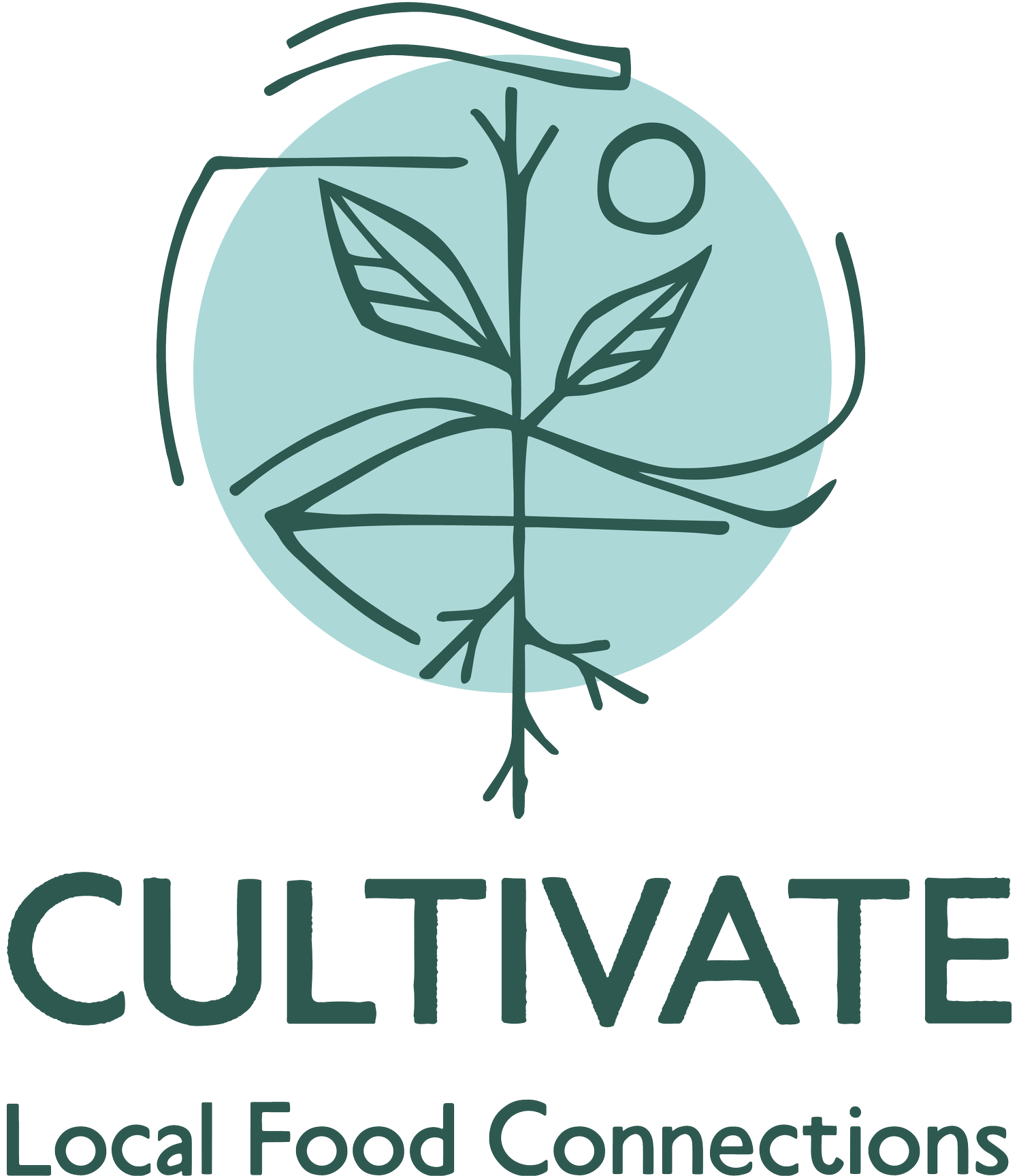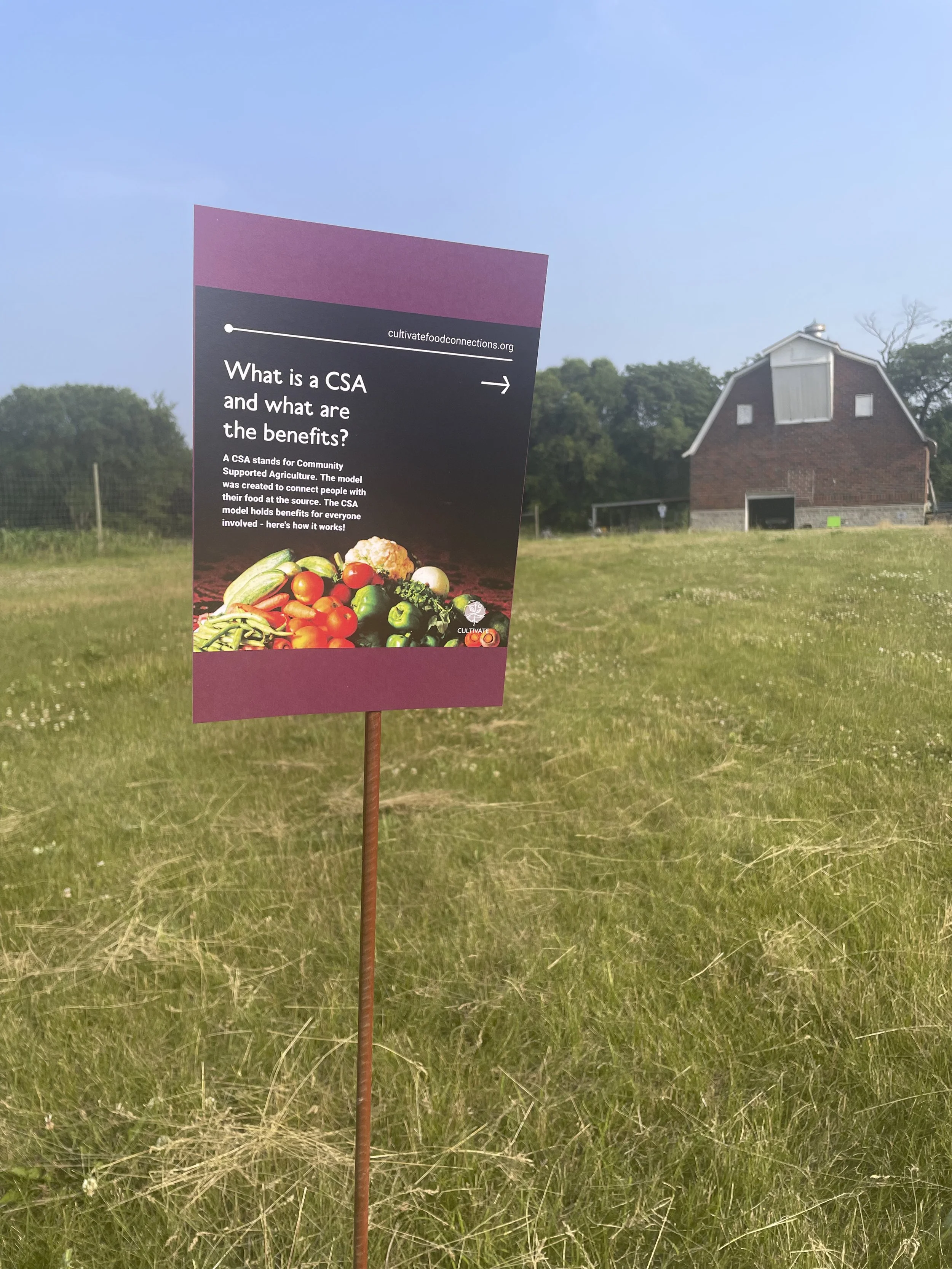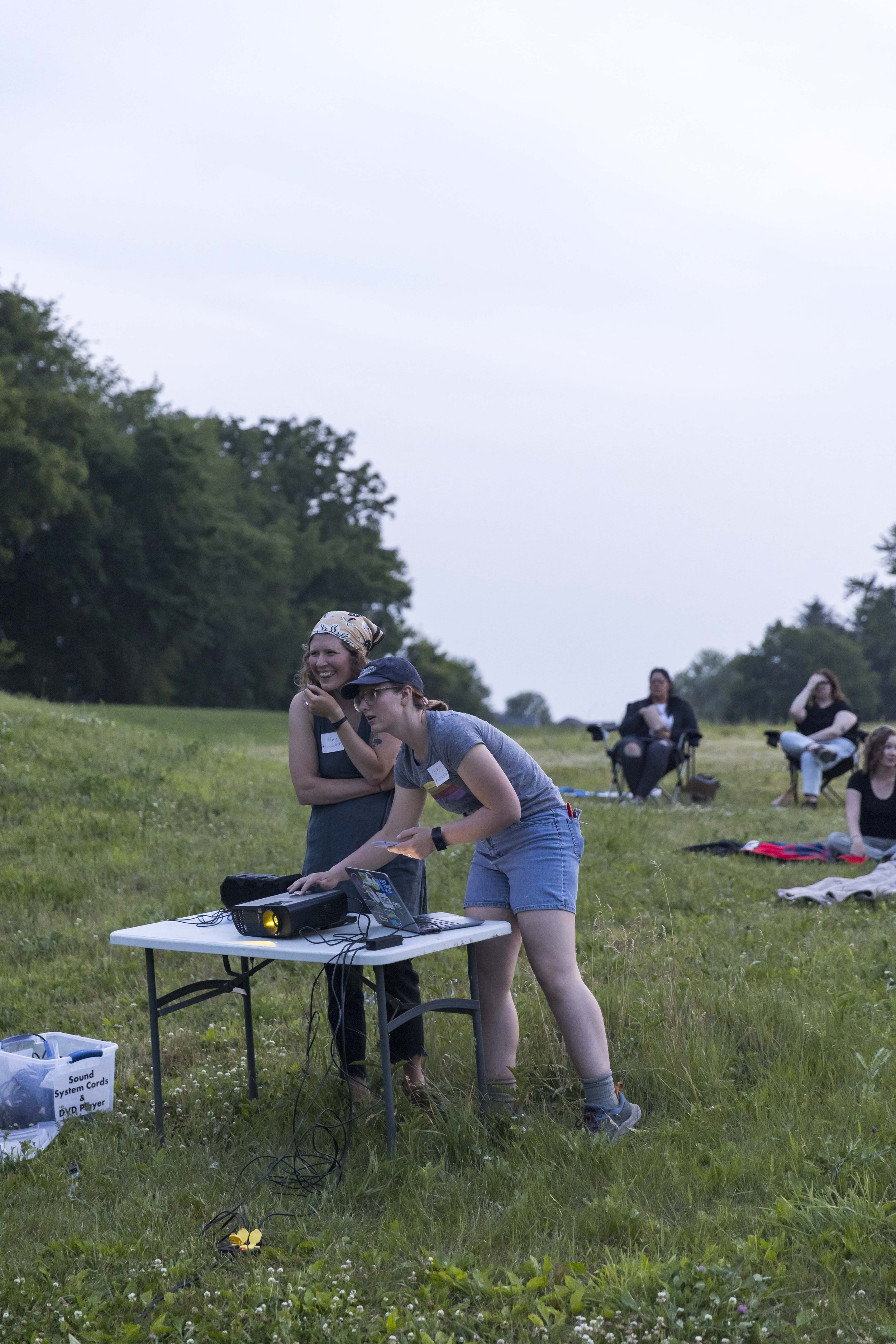Cultivate Your Plate
Event Planning TOOLKIT
We’re all about connections.
Cultivate: Local Food Connection’s mission is to strengthen our local food system with a focus on elevating small scale producers and regenerative farming practices.
We do this through cultivating a community of engaged food citizens and by scaling up the structures that support our local food system as a whole.
We hope the resources below help you GROW your local food community as well!

Why Connections matter.
-
A food citizen is more than a conscious consumer. A food citizen understands the wide-reaching impact of his or her decisions about what and where to eat—and is inclined to vote accordingly. A food citizen:
Is actively aware of food system issues
Employs socially and environmentally conscious decision-making
Supports a democratic process of involving people within food system dynamics
Chooses food based on its origin, how it’s produced, and who’s producing it
Influences many aspects of the food system, including socioeconomic justice and environmental sustainability
“Citizen” versus “consumer”
“Consumer” implies a passive identity, which undermines the value and function of the individual. A food “consumer” label suggests minimal (or no) involvement in how one’s food is produced and processed. Consumers face limited choice and are forced to accept what is made available—a diet that is the result of a food system that erodes public health, degrades our ecosystems, and takes advantage of the poor and marginalized. In contrast, a “citizen” is informed, deliberate, and active.
(Definition from John Hopkins Center for a Livable Future.)
-
Today “less than 2% of those actively employed in the U.S. participate directly in producing crops. As most of us now lack personal experience with farming, we also lack ways to understand what farming involves, who it involves, what is required to stay in business, and how it affects our environment and society as a whole.”
(Strategies for Expanding Thinking About Agriculture (2022), Reframing Farming and Food Narrative).
-
Farming practices that benefit the environment and society can be expensive for farmers, yet go unacknowledged and undercompensated by society.
“To help meet the challenges of farming, society must recognize and support the broad benefits of farming. To make this shift, the public will need to:
Deepen and broaden its knowledge of farming.
Understand multiple dimensions of sustainability.
Promote local and regional farms and the benefits of diverse farms as part of a local economy.
Actively engage farmers/growers as essential voices in research and policymaking.
Support systemic changes that create and expand opportunities in farming for younger people, people of color, and women.”
(Reframing Farming and Food Narrative, farmingandfoodnarrative.org)
-
The 2017 Michigan State University Food Literacy Poll also exposed an overwhelming disconnect between Americans and their food. The question, “How often do you seek information about where your food was grown and how it was produced?” exposed that 35% of the people surveyed rarely look into where their food comes from, and 13% never do.
Urban and rural landscapes, cultures, and communities are largely seen as opposites, with suburbs as a middle ground. Possibly due to their lack of interaction, there is a disconnect between their beliefs about each other. According to a Pew study, the majority of people in each type of community don’t believe that other communities understand theirproblems, but they think they understand the problems of other communities…
In order to break the dichotomy between urban and rural, we need to explore the need for a a new social contract between farmer and non-farmer, an ethos that sees urban and rural as connected communities and focuses on their common goals about the future of agriculture and the American relationship to food and its production.
-
In addition to the benefits for our environment, health and local economies, being connected to fresh, local food also benefits our mental health.
“Farmers’ markets and CSAs create new spaces within communities for people to socialize. In fact, sociologists estimate people have 10 times more conversations at farmers’ markets than supermarkets.
Further, because these gatherings are about food and the local environment, people may become more interested in the well being of their community and environment. Direct marketing by farmers to consumers builds relationships, creating customers who care deeply about “their” farmers and farmers who work hard to provide the very best food for “their” customers.”
(Iowa’s Local Food System: A Place to Grow by Laura Krouse, The Iowa Policy Project).
-
Additionally, according to the 2023 report, Our Epidemic of Loneliness and Isolation: The U.S. Surgeon General’s Advisory on the Healing Effects of Social Connection and Community, “Social connection is a critical and underappreciated contributor to individual and population health, community safety, resilience, and prosperity.”
Hosting connections events like Cultivate Your Plate aims to support the recommendations from this report, specifically around Strengthening Social Infrastructure in Local Communities (Pillar 1) and by Cultivating a Culture of Connection (Pillar 6).
-
Our Cultivate Your Plate events are designed to create inclusive, learning and connection spaces, empowering loyal and allied food citizens.
We offer our events as family friendly and donation based and/or sliding scale so that price is not a barrier for participation.
We also share resources about where people can access local food and talk about options for buying local through Double Up Food Bucks with SNAP/EBT.
We also gather donations for our Farm to Table for All Fund in order to purchase local foods for community refrigerators and pantries.
-
Event Planning
-
Check out our list of possible local food system topics and accompanying resources.
You can see examples of our past events here.
Also, check out all the great resources from Nourish: Food + Community, an educational initiative designed to open a meaningful conversation about food, health, and sustainability.
-
Budget Examples HERE
Educator Stipends: We value our producer educators and always strive to compensate them for their time. We also source as much of our community meal ingredients from local farms, including our educators, to further promote their businesses.
Presenter Stipend Formula, accounting for round trip mileage
Base Rate, in-town, $40
5 - 20 miles out of town, $50
21 - 35 miles, $60
36 - 50 miles, $70
51+ miles, $85
-
Single, Larger Event Model
-
Our larger events usually entail four presenter/educators and host around 60 people.
We start with a large group introduction to the theme, usually with a short video before attendees are then broken up into four groups.
-
The small groups rotate through each station, staying at each station for about 15 minutes. In the small group they hear first hand from an area farmer, producer or food system participant (example: a meat locker manager) on that topic.
The small group style offers space for authentic conversations, personal connections and time to ask questions.
-
After the small group portion of the evening, participants are asked to complete their survey and turn in the survey as their “meal ticket”.
We serve a community meal created by a volunteer chef featuring seasonal food, offering space for further connections to be made.
Event Series Model
-
In this model we have one educator at each event and host a series of 4-5 events in a row over a few weeks or months.
-
Generally these classes have been around 20 - 30 attendees but can vary depending on your space.
These classes can be hands on workshops, cooking demos, or presentations that include group conversations.
-
We continue to have a community meal element to these events with a simple meal that our staff make at the host site. This gives times for the attendees to informally talk with the presenter and each other.

Survey Examples
Our post-event survey data shows that 76% of CYP attendees increased their awareness of local foods, and 92% of participants stated they were more likely to purchase local foods after attending a Cultivate Your Plate event.




